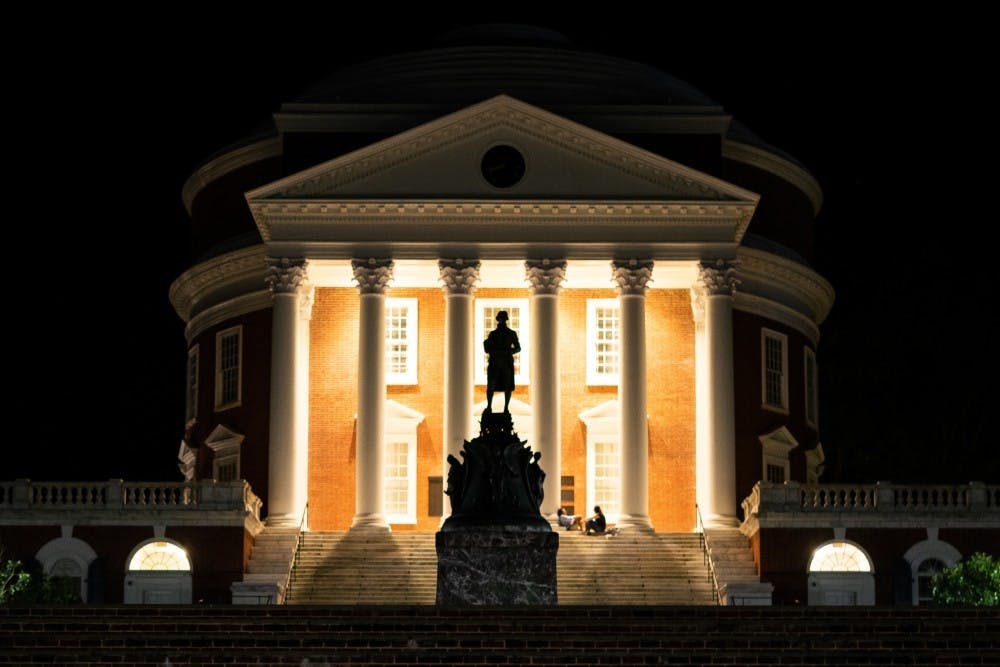Charlottesville City Council recently voted to no longer celebrate Thomas Jefferson’s birthday as an official holiday. The celebration of his birthday on April 13 will be replaced with another holiday known as Liberation and Freedom Day, which will take place March 3.
Previously, in the celebration of his birthday — Founder’s Day — the University would plant a tree to honor a member of the community who made a long-term contribution. However, the University does not observe Founder’s Day as an official holiday. Additionally, University officials attend a formal dinner and luncheon with the Thomas Jefferson Foundation at Monticello, awarding recipients of the Thomas Jefferson Foundation Medals in Architecture, Law, Citizen Leadership and Global Innovation.
Mayor Nikuyah Walker initially proposed Liberation and Freedom Day replace Jefferson’s birthday June 3. Liberation and Freedom Day will commemorate March 3, 1865 — the day Union Army forces arrived in Charlottesville at the end of the Civil War. Union troops met with city officials near the Rotunda to signal an end of the war and slavery. The holiday will reflect on the emancipation of the over 14,000 slaves in Charlottesville.
An official declaration of the change was made by Charlottesville City Manager Tarron Richardson July 3.
The decision to nix Jefferson’s birthday as an official holiday came about with increasing discussions on the history of slavery and discrimination in the country. Jefferson’s legacy as both the founder of U.Va. and a slave owner are large components of these discussions at the University. With the exception of Kathy Galvin, all council members voted to eliminate the holiday. Council member Wes Bellamy expressed support for Walker’s proposal when she made it.
“The events of August 2017 have challenged Charlottesville to confront its history and to acknowledge that this community has not always embraced all of our citizens as equals,” Richardson said in the press release. “We want Charlottesville to be known as a community that has learned important lessons from our long and complex racial history, from the Summer of Hate, that we are resilient, and that we have set a course for a better future for all of our residents.”
However, the removal of Jefferson’s birthday as a holiday was not met with unanimous enthusiasm. College Republicans at the Unversity released a statement of Facebook June 13 urging City Council not to repeal the holiday.
“We encourage City Council to reflect on Thomas Jefferson’s proudest accomplishments recorded on his gravestone at Monticello,” College Republicans Executive Board said in their Facebook post. “[His accomplishments] have been critical to the advancement of the city of Charlottesville and the nation as a whole. Given this, we are dismayed by the mayor’s intention to no longer recognize Thomas Jefferson’s birthday as a city holiday.”
College Republicans stated that while they do recognize the shortcomings of Jefferson’s legacy, they do not believe it merits a reduction in Jefferson’s historical status. Though they applaud the greater recognition of Liberation and Freedom Day, they do not believe it should come at the expense of ceasing to honor Jefferson’s birthday.
However, others have argued that changing the city holiday from Jefferson’s birthday to Liberation and Freedom Day does not cause the City to forget Jefferson as he is still celebrated on Presidents Day.
Co-chair of the President’s Commission on Slavery and the University and Asst. Dean and Prof. Kirt von Daacke said stopping celebration of Jefferson’s birthday in and of itself does not change Jefferson’s controversial history, but the City has to meaningfully grapple with that history.
“We have to remember that [Jefferson] and his long life are filled with things we can admire and also things we abhor,” von Daacke said in an email to The Cavalier Daily. “No longer giving city employees the day off on Jefferson’s birthday does nothing to change history or forget his many complicated legacies. We have to find a way to remember and understand all of those legacies.”
The change also comes in light of the white supremacist rallies of Aug. 11 and 12, 2017, which has since been used as a catalyst to discuss both historical and present-day issues of race in Charlottesville and nationwide.
“I think it is important for Charlottesville, particularly as we come to terms with our own local history and August 11-12, for us to take opportunities like this to change what we officially recognize as a municipality,” von Daacke said. “We are taking these symbolic steps, such as making March 3 a city holiday, to begin to change the narrative, tell a fuller story about the difficult and complicated local past and create a more inclusive environment.”







